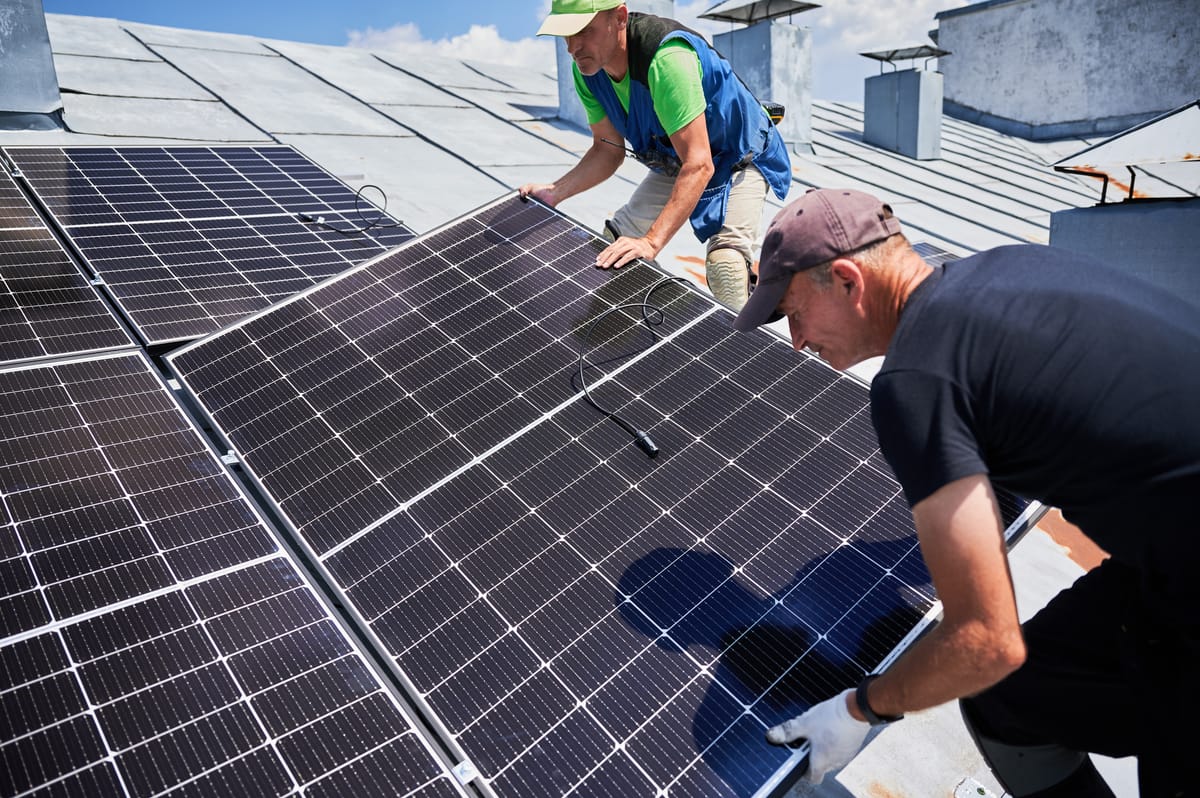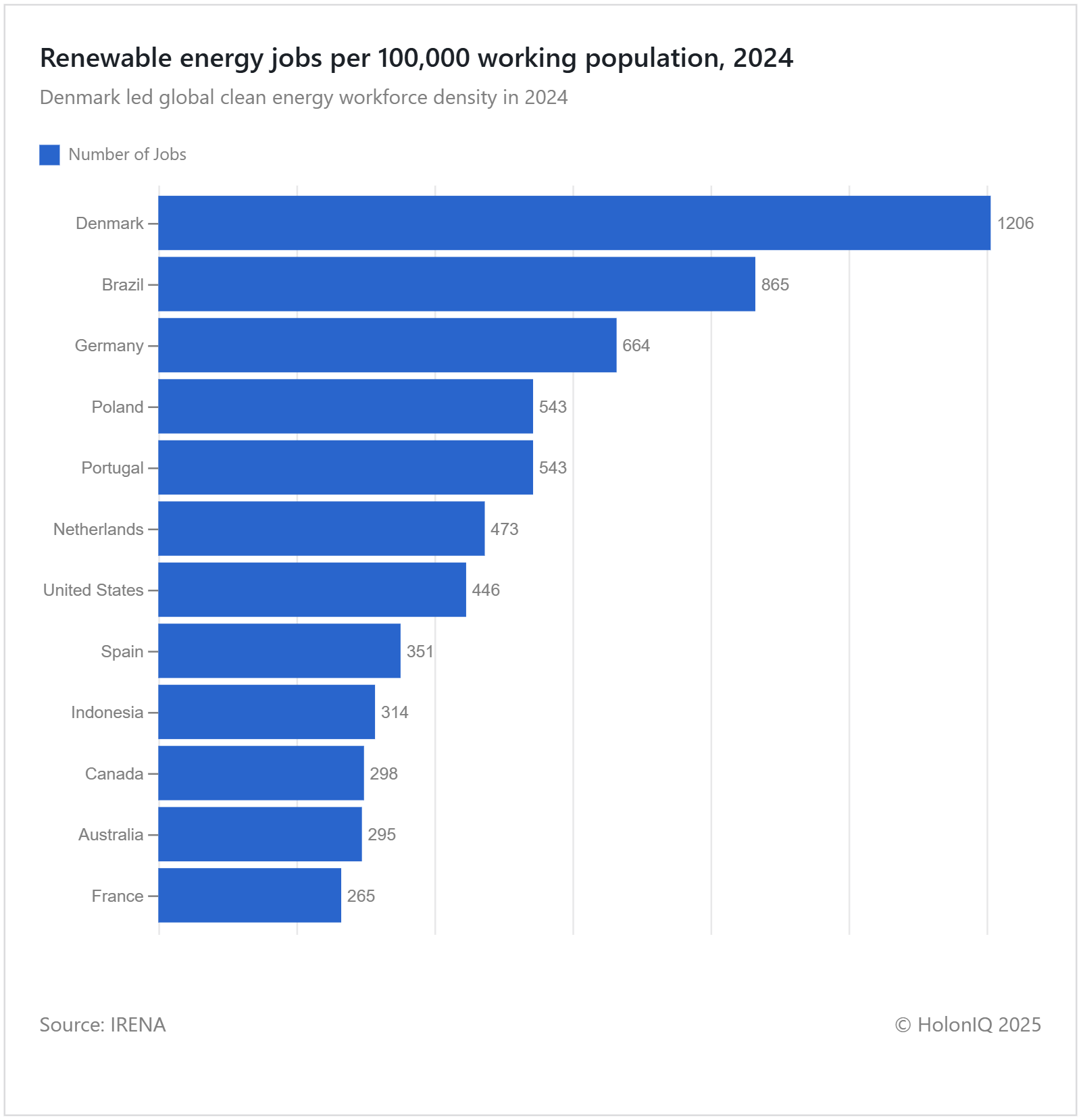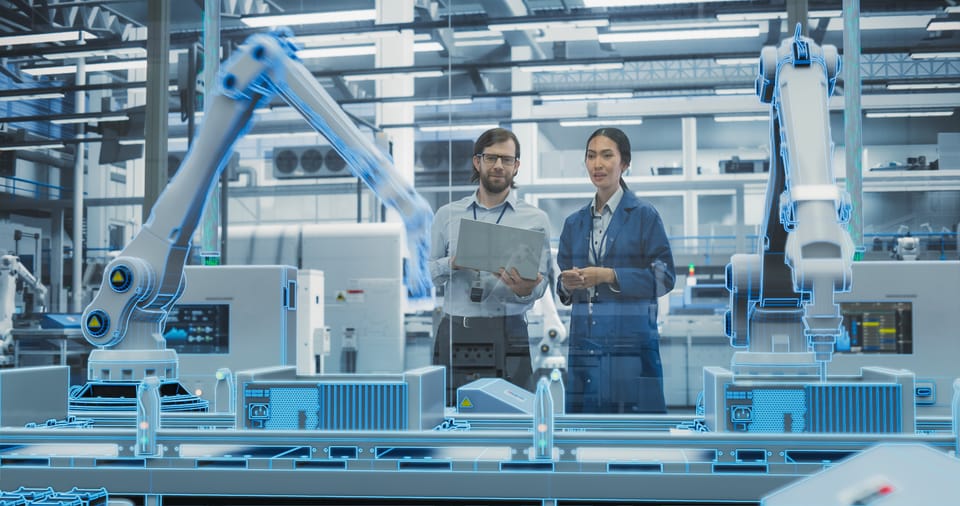🌎 Green Skills #22
HolonIQ is tracking reskilling and upskilling efforts as technology, decarbonization, and global dynamics reshape energy, environment, infrastructure, and mobility sectors. Targeted workforce development is key to enhancing skills, driving growth, and supporting sustainable progress.

Ireland’s green transition is gaining momentum, with 75% of jobs now requiring green skills and employment in the sector growing 6.4% annually. The government is driving workforce readiness by upskilling talent across agriculture, construction, energy, and services. This mirrors broader global trends—Denmark leads with 1,206 green jobs per 100,000 people, reflecting strong public-private coordination and deep renewable integration. In line with this momentum, South Africa also landed a $1M AfDB grant to boost green skills for youth, fast-tracking climate-smart training with a focus on gender inclusion. Australia’s new workforce development policy unlocks $1M+ in grants to expand clean energy skills and double electricity jobs by 2029. Focused on industry-led training and rural inclusion, the policy targets critical gaps in the renewables talent pipeline.
Thanks for reading!
Not a subscriber yet?
Green Labor Market Trends
👨🏻🔧 75% of jobs in Ireland now require green skills, with green employment growing 6.4% annually. The policy focuses on upskilling workers across agriculture, construction, energy, and services to support Ireland’s green transition and workforce readiness.
🏭 SQM and Nissan announce significant job cuts amid industry challenges. SQM lays off 5% of its Chilean workforce due to a lithium price slump, while Nissan cuts 250 jobs at its Sunderland plant amid global restructuring. Both companies aim to streamline operations and position themselves for future market demands despite current financial pressures.
🤝 Clean Energy Council launches new skills-passport policy, introducing an industry-backed training matrix and digital credentials to streamline clean energy jobs in Victoria and Queensland. This aims to recruit 40,000 additional workers by 2030, helping job-seekers and employers match qualifications to large-scale wind, solar, and battery projects
European Countries and Brazil are Leading in Renewable Workforce Density

💡 Denmark tops the Global Rankings with 1,206 Jobs per 100,000, reflecting deep integration of renewables into the labor market through strong public-private alignment.
🌿 Brazil and Germany close the Gap, with 885 and 684 jobs per 100,000, respectively, powered by growing domestic energy demand and export potential.
📉 Australia Falls Short at 295 Jobs per 100,000, exposing a gap between national clean energy targets and actual workforce readiness.
🏗️ France Lags at 265 Jobs per 100,000, underscoring the challenge of mobilizing large-scale talent pipelines despite ambitious decarbonization goals.
🎯 Actionable Strategies: To boost renewable workforce density, countries like Australia must urgently operationalize workforce development plans. The government’s new $1M+ training grants, targeting battery skills, regional access, and diversity, offer a pathway to scale. Programs like TAFE Queensland can help bridge rural talent gaps, while industry-led certifications and stackable credentials will accelerate workforce entry. Aligning training supply with national job forecasts is essential to meet 2040 targets and catch up to global leaders like Denmark and Germany.
Upskilling/Reskilling Initiatives
🌱 South Africa Lands $1M AfDB Grant to Boost Green Skills for Youth.. The African Development Bank is funding green training programs focused on youth and gender inclusion, aiming to fast-track climate-smart skills and support South Africa’s just transition.
🔋 Australia Launches $1M Grants to Boost Battery Workforce. TAFE Queensland opens $1M in national research grants to develop clean energy battery training solutions, targeting rural access and workforce diversity. Backed by federal and state support, the program aims to fast-track training innovation as Australia prepares for 100,000 new clean energy jobs by 2040.
⚛️ UK Sets 20-Year Plan to Build Fusion Energy Workforce. UKAEA and East Midlands leaders launch a 20-year partnership to train thousands for the UK’s first fusion power plant, aiming to power operations by 2040. Focus areas include apprenticeships, advanced skills, and pathways to support 6,500+ future jobs at the West Burton STEP site.
Policy Initiatives
⚡ Australia’s new workforce development policy unlocks $1M+ in grants to expand clean energy skills and double electricity jobs by 2029. Focused on industry-led training and rural inclusion, the policy targets critical gaps in the renewables talent pipeline.
Like getting this newsletter? Request a demo for unlimited access to over one million charts
Thank you for reading. Have a great week ahead!
Have some feedback or suggestions? Let us know at hello@holoniq.com




